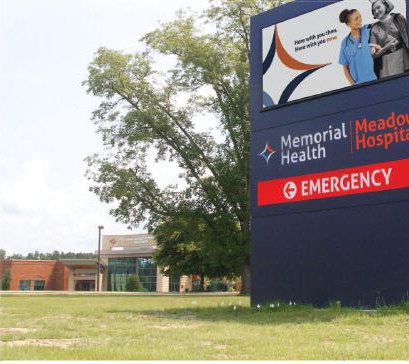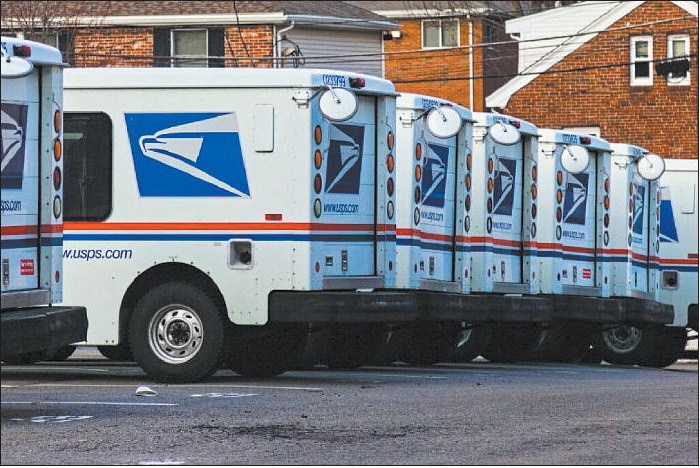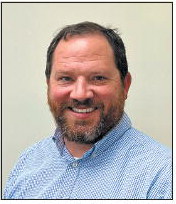Area Combatting


COVID Resurgence
We are highly focused and ready to take this on, and we are in the midst of it.
– Memorial Health Meadows Hospital CEO Matt Hasbrouck
Despite high hopes that we were seeing the waning of the COVID pandemic, it is becoming more apparent by the day that another wave—this time the Delta variant—has shown up in our community and is demanding immediate action from health care and education officials.
As of Monday, August 9, Memorial Health Meadows Hospital in Vidalia was treating 44 patients who had been diagnosed with COVID. “None of these patients were vaccinated,” said Karen McColl, M.D., Vice President of Medical Affairs and Chief Medical Officer at Meadows.
McColl said Monday afternoon that 63% of the inpatients admitted to Meadows are being treated for COVID. The hospital was treating seven patients in the Intensive Care Unit who were on
Photo by Makaylee Randolph continued from page
ventilation, 10 patients in the Progressive Care Unit, 23 in the Medical-Surgical Unit and one in Labor and Delivery.” The remainder of the 44 patients testing positive for COVID were being held in the Emergency Department (ED) awaiting placement.
A number of school age and younger children were being seen in ED but none had been hospitalized so far, McColl noted. “They are receiving outpatient therapy,” she said. In the past two weeks, the hospital has had three COVID- related deaths.
Last week, 27 patients were in house, four of them in Intensive Care on ventilators. “That was a fluid 27 patients; we transferred four to five patients out of here. They go and we have more. We are seeing more patients every day; our Emergency Department is packed to the gills.”
She said the patients range in age from 30 to 80, but the hospital is seeing more patients in their 30s and 40s than with the original COVID pandemic.
The Schools Last week, two area school systems announced that the reopening of campuses would be postponed because of a resurgence of the virus. Montgomery County postponed its start date from August 3 until August 10 after five teachers and one student tested positive for COVID. Ten other staff members were quarantined because of exposure to the virus.
On Sunday afternoon, Wheeler County Schools Superintendent Suzanne Couey issued an announcement that the restart of the system’s prekindergarten classes would be delayed until Monday, August 16, because of a teacher shortage due to COVID.
One Pre-K teacher tested positive for COVID and other staff members were quarantined after being in close contact with that teacher, Couey said. A few teachers in other grade levels at WCES have tested positive for COVID or have been in close contact with cases, as well, Couey explained. “So, some teachers will not be there the first week of school but we have a plan to cover those classes with qualified staff and are going to do whatever we can to stay in school as long as possible.” She added that personnel who have tested positive were exposed outside the school.
Couey told parents in her announcement, “As you know, we are requiring that all students wear masks throughout the day except for eating or while outside in order to protect the health and safety of all students. Wearing masks will also help us keep students in school because students who wear masks properly will not have to quarantine, per CDC guidelines.” She urged parents to not only make sure that their child wears a mask each morning but to see that is fits correctly.
“We had all hoped we could have a more normal start to the year but the Delta variant that is currently circulating in our community is much more contagious than the original virus, so we need to be as careful as possible.”
Couey noted that the system continues to monitor the case count in the community and adjust requirements accordingly. The system will be providing weekly COVID updates and communicate updates to parents as needed. “We will do whatever we can to keep our students in school, and we appreciate parents and families working with us to help make that possible.”
Last week, Couey announced that the school’s original start date of Friday, August 6, would be pushed to Monday, August 9, because of the outbreak of the variant in the community and the need for schools to have extra time to prepare.
Originally, the schools had intended to have Wheeler County Health Department staff administer COVID vaccinations to students 12 and above with parental permission. This was to have been accomplished at the middle/ high school open house on August 4. This plan was scrapped when the open house date was pushed forward to August 6. The system offered to help facilitate the vaccinations at the local health department as parents requested that their child be vaccinated.
Most area private and public schools resumed classes on Friday, August 6. As of Monday morning, none of those schools reported any major issues.
Vidalia Heritage Academy’s Head of School Jeff McCormick said that although a couple of staff members and a couple of students had developed COVID issues and will be managed appropriately, the school is operating on a normal schedule and masks are not required. Vidalia City Schools Communications Director John Koon said the system experienced a great day Friday, and everyone was excited to be back at school. He said there had been no COVID issues thus far. Toombs County Schools Superintendent Barry Waller said that system had not encountered any big issues as of yet. “It’s been smooth so far. We are operating with our COVID protocols in place, and we are in good shape for now.”
Delta Variant Characteristics “We are very concerned about the schools opening,” Dr. McColl said, noting that this more aggressive, more contagious variant of the virus is being seen more often in younger patients than the original virus that emerged in 2019 and 2020. “Right now, we make the assumption that it’s the variant because we are seeing such a rapid onset of symptoms, and we know that well over 80% of COVID cases currently diagnosed within the U.S. is the variant,” McColl explained.
In a statement issued last week, McColl noted that the World Health Organization stated that this variant is spreading about 55% faster than the original strain. “This helps explain the significant increase in positive cases in our area,” she said. McColl said that when the local hospital performs a COVID test, the results are simply either positive or negative. “At the CDC a certain volume of the COVID swabs that are done across the country are genotyped as to what variant it is. We don’t get that information back (here).”
She elaborated, “What we are seeing locally is that folks are becoming symptomatic faster (in one to three days) than they did in the first two waves where they would be exposed and but not develop symptoms for five or six days. What we now know is that this variant has a much higher concentration in the nose and in the back of the throat. With that higher concentration we are seeing symptoms develop faster. That is why we are seeing this incredibly high spike.” McColl said that just a month ago, the hospital had only a couple of patients being treated in house. For a few days, there were actually no new admissions and no treatments in progress. People began to relax and to hope the worst was over. Many decided against vaccinations. “Our vaccination rate is low in this community, and the variant preys on that fact. It is looking for folks who are not protected.”
McColl illustrated that the variant evolved to allow infection to spread more easily and more rapidly. “The protein in the virus changed slightly, becoming stickier, allowing it bind to the membrane of cells and infect persons at a much higher rate with higher concentrations of the viral particles. That’s the big difference now and we are seeing it in younger patients.” She said, previously, in the early stages (of the virus) last year, it was typically folks over 60 to 65 years of age who were hospitalized and needing critical care. Now, 30-, 40- and 50-year-olds (are being affected) and now we are seeing a greater of volume of children infected.” “Thank goodness the vaccines are still protective against the variant. If you were vaccinated in January or February, you still have protection,” she said, adding, “But if there is ever a call to get vaccinated, it is now.” McColl stressed that while the vaccination is an effective method of protection in against the virus, there are no vaccines that are 100% effective. “We are seeing a 6% to 7% breakthrough rate where individuals are fully vaccinated but testing positive for COVID. We are seeing that with those who are vaccinated, typically have mild symptoms, don’t require hospitalization, and are recovering faster from the illness.”
She noted, “The vaccine is still working and worth getting. Right now, it is our biggest deterrent in preventing the spread of this variant and the potential that another mutation could occur and we could have another variant that might be more contagious and aggressive.”
Right now, the greatest concern Meadows is facing is that its employee force is getting sick from the highly- contagious virus. “This wave has affected us more with greater volumes of staff being ill than the first or second wave,” McColl said. “We are stressed over the fact that not enough of our folks have been vaccinated and are coming down with COVID.” While the hospital has maintained and enforced its COVID protocols, including a mask mandate, employees are not required to be vaccinated. “We recommend it for all of our staff and the community, but they are free to make that choice.”
McColl said Meadows is not only urging employees to take the vaccine, it is making the process as easy as possible for its staff. “A certain percentage will develop headache, or fatigue, or flu-like symptoms (after taking the vaccine). If they have to call in sick, they will be paid for their shift.” She said Meadows officials are encouraged as they begin see a good percentage of hospital employees electing to be vaccinated.
Matt Hasbrouck, Meadows’ new Chief Executive Officer, has been on the job for four weeks. He has hit the ground running, so to speak, as he deals with this new wave of COVID. “Our people are our greatest asset,” he said of the Meadows staff. “Without people, we are not going to be able to provide care.”
As an HCA facility, Meadows has access to a vast system of resources. “HCA has 186 facilities in 20 states and 65 communities across the country going through this pandemic. Because of that scale, we have been able to take advantage of best practices.” HCA has 13 health care facilities in the region that Meadows joined this year, and this relationship recently paid off when the local facility was able to bring in regional HCA health care providers when its own workforce was compromised by COVID.
“I have learned about some of the great things Meadows has done over last 16 months (to combat COVID). Those processes are still in place and can be turned on and off, based on need. In terms of supplies and equipment, we could not be better prepared,” Hasbrouck said. Every morning at 8 a.m., hospital staff goes through hospital incident command. “It is 30 minutes of touching bases on staffing, processes, supplies and equipment. We make sure we have what we need to take care of patients and to address surges.” Having a regional partnership guarantees that Meadows can call on other facilities as extra beds are needed. For instance, rather than keeping patients in the Emergency Department because Meadows is at capacity, patients can be transferred to HCA hospitals within the region, including tertiary facilities, where a higher level of care is available as needed. But the goal is to provide care locally. “Our goal not just through this pandemic but through the Meadows-HCA transition and partnership is to keep care closer to home. To do that, we need to make sure we are bringing the right folks into the community and partnering with the region when we need to look outside.” He added, “In the four weeks I have been here, I have been impressed with the response to this resurgence of the virus by Meadows and the Vidalia community. We have tremendous best practices in place we can share elsewhere. We are highly focused and ready to take this on, and we are in the midst of it. We have been in touch with community leaders to share what we are doing and to help educate the public. We are fortunate have Dr. McColl here to speak to what is going on not only locally but regionally and nationally.”





